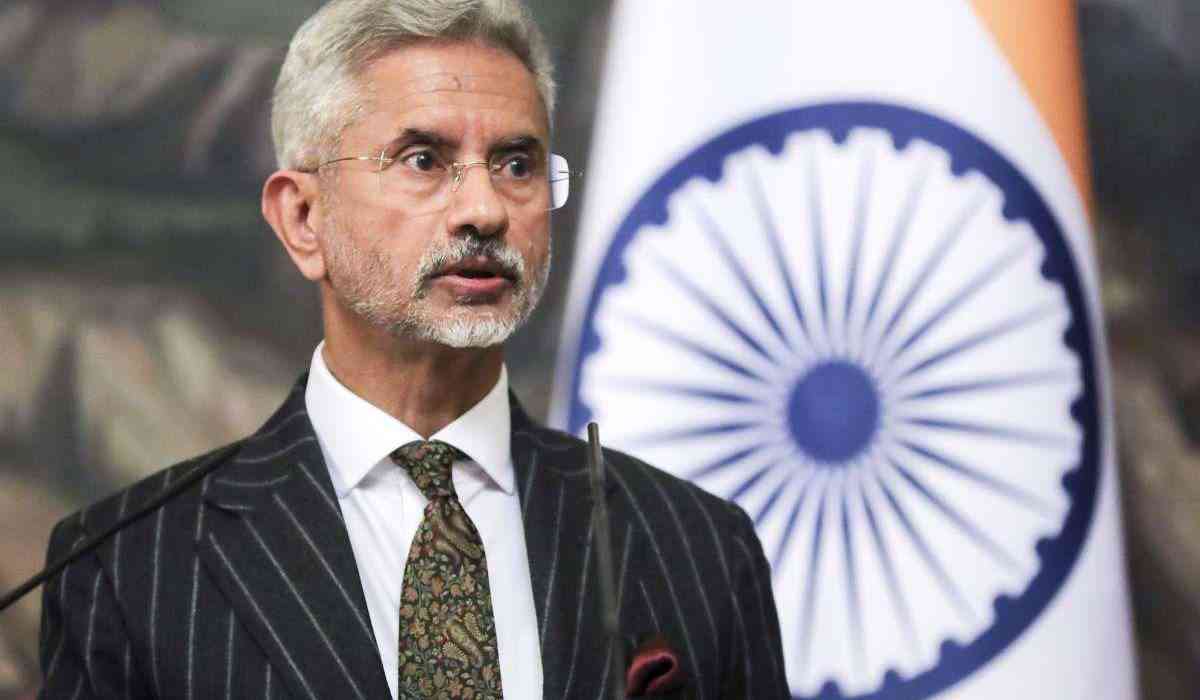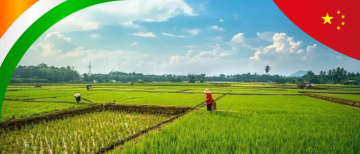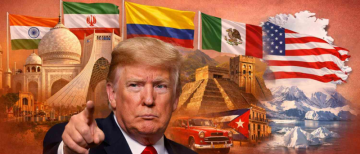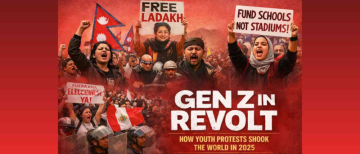The External Affairs Minister, S Jaishankar, is on a trip to three countries in Southeast Asia, members of ASEAN: Singapore, the Philippines, and Malaysia. The trip began on March 23 and ended on 27.
S.Jaishankar aims to strengthen diplomatic efforts to take India's relations with its Southeast Asian allies to new heights during his five-day tour. He engaged with the leadership of nations on regional issues of mutual concern.
First Stop: Singapore
From March 23 to 25, Dr. S. Jaishankar made an official three-day visit to Singapore with the goal of strengthening the strategic alliance between the two countries and evaluating progress in a number of areas of cooperation.
According to the Ministry of External Affairs (MEA), he held bilateral talks with senior ministers and leaders in Singapore during his visit, with an emphasis on strengthening collaboration in the areas of fintech, digitalization, green economy, skills development, and food security.
He honoured Netaji Subhas Chandra Bose at the INA marker and took part in an Institute of South Asian Studies (ISAS) event where he conversed with scholars and decision-makers.
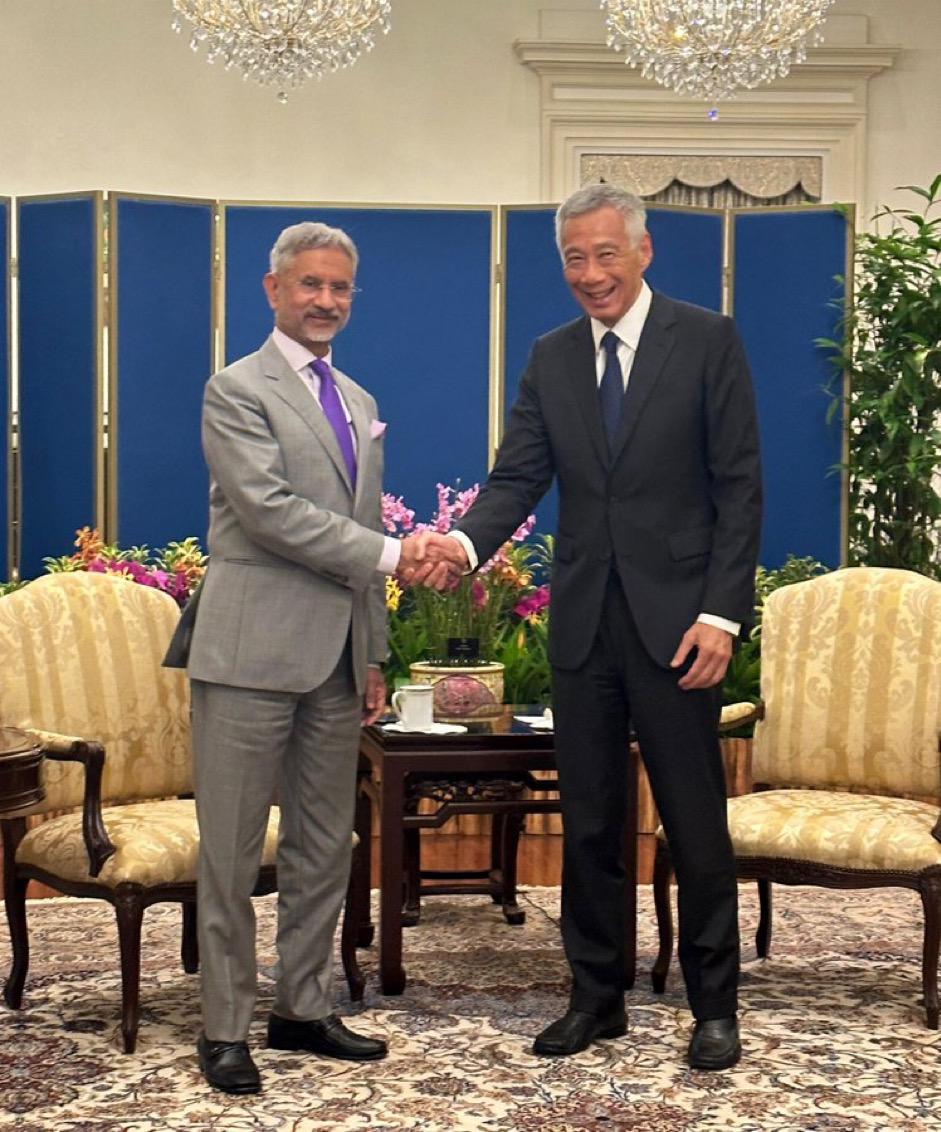
India-Singapore Relations:
Singapore acts as India's gateway to the region; it has played a crucial role in integrating India into ASEAN platforms by fostering strong ties in trade, commerce, investments, defence, and security. In 2023, Singapore was invited as a Guest Country during India's G20 Presidency last year and is currently serving as the country coordinator for India at ASEAN. India and Singapore have deep cultural, commercial, and historical ties.
After gaining independence in 1965, Singapore was promptly acknowledged by India. Singapore and India have a long history together, spanning from Prime Minister Goh Chok Tong's 1994 visit to India, which sparked a "mild India fever," to current collaborations.
Singapore is an important trading partner to India. India and Singapore signed the Comprehensive Economic Cooperation Agreement (CECA) in 2005. Regular military training is conducted between both the nations and defence cooperation is strong. Both nations cherish the differences in their cultures and interpersonal ties. Singapore's infrastructure experience complements India's goals, with Singaporean companies actively involved in a number of projects.
Here are some highlights of my just concluded visit to Singapore. pic.twitter.com/SOFr7l1s8e— Dr. S. Jaishankar (Modi Ka Parivar) (@DrSJaishankar) March 26, 2024
Second Stop: Philippines
A major portion of Mr. Jaishankar's three-nation tour included his visit to Manila on 26 March, where he met with Foreign Minister Enrique Manalo and President Bongbong Marcos of the Philippines. He also visited the Indian Coast Guard pollution-control ship ICGS Samudra Paheredar, which is docked in Manila until Thursday, and stressed the significance of India and the Philippines' maritime cooperation.
He emphasized the necessity of cooperation among like-minded nations in the Indo-Pacific area as he addressed common issues like illegal fishing and ocean pollution. However, This visit coincided with a Filipino ship being the target of aggressive actions by the Chinese Coast Guard in the Spratly Islands, which led to increased tensions between the Chinese and Philippine navies.
The discussion topics with Mr. Manalo included trade, building the capacity of digital infrastructure, and involvement in regional issues like the Indo-Pacific, Myanmar, and the conflict in Ukraine. Jaishankar also briefed his counterpart on Indian naval operations aimed at countering threats in the Red Sea.
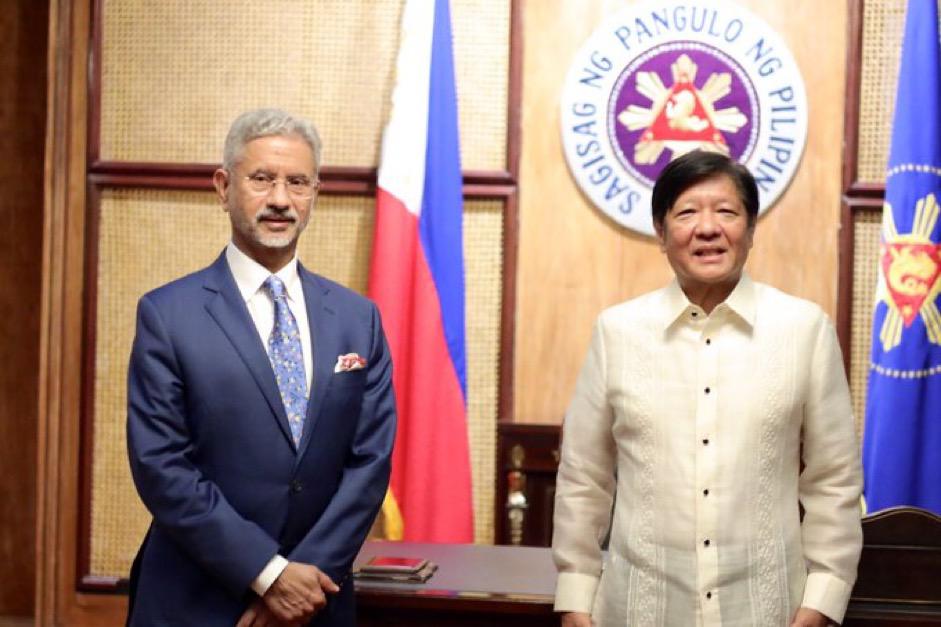
India-Philippines Relations:
India's support for the Philippines is essential, particularly in light of China's military accords with neighbouring countries like the Maldives. Recent events show that India and the Philippines' relationship is growing, especially in the area of defence cooperation, as evidenced by agreements on Tejas Mk1 aircraft and BrahMos missiles.
India has shifted from its previous neutral position to a more proactive one, supporting the sovereignty of the Philippines in the South China Sea. India has backed the Philippines' claim to sovereignty in the South China Sea. Manila's security strategy depends more and more on collaboration with like-minded allies like India as it attempts to assert its rights in the West Philippine Sea.
First in the region, the Philippines has imported supersonic BrahMos missiles and expressed interest in developing its own light combat aircraft and helicopters. This action is in retaliation for China's assertive actions in the South China Sea, where tensions between the two countries have grown as a result of events such as the collision between Chinese and Philippine vessels. A further source of complexity is the Scarborough Shoal dispute, which involves Taiwan, China, and the Philippines.
Some glimpses of my visit to the Philippines. pic.twitter.com/yF5r87cG75— Dr. S. Jaishankar (Modi Ka Parivar) (@DrSJaishankar) March 27, 2024
Last Stop: Malaysia
Foreign Affairs Minister S. Jaishankar's trip ended in Malaysia, the visit reiterated India's commitment to strengthening the Enhanced Strategic Partnership between the two countries, Malaysia is seen by India as a critical partner in ASEAN and its Act East Policy.
Jaishankar extended an invitation from Prime Minister Narendra Modi to Malaysian Prime Minister Datuk Seri Anwar Ibrahim during his visit to talk about enhancing India-ASEAN relations. Anwar said he was in favour of strengthening bilateral relations and promised to help set up an Indian Institute of Technology branch campus in Malaysia.
Jaishankar also held bilateral talks on a range of topics related to cooperation, including politics, trade, defense, digital, culture, and education, with Malaysia's Foreign Minister, Mohamad Bin Haji Hasan. Jaishankar also praised the contribution of the Indian diaspora to India-Malaysia relations and held roundtable discussions with leaders in the industry in addition to meeting with Minister of Digital Gobind Singh Deo.
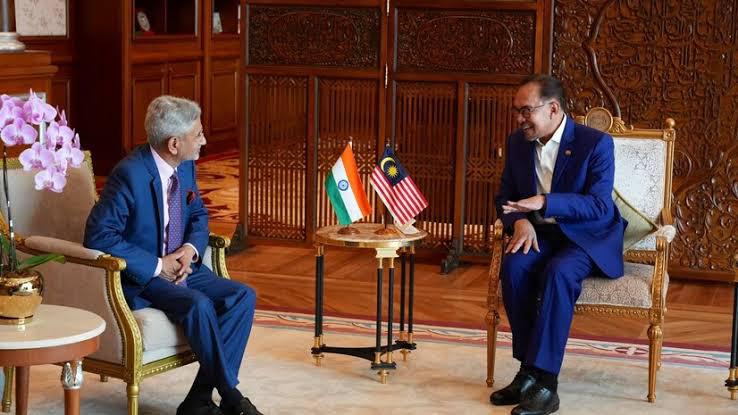
India-Malaysia Relations:
Tensions arose in 2019 between Malaysia and India as a result of comments made about Kashmir by the then-prime minister, Mahathir Mohamad. But since Anwar Ibrahim took office in 2022, attempts have been made to patch things up.
The two countries have signed agreements on strategic partnerships. Both nations have continued to cooperate in defense, politics, economics, and parliamentary exchanges in spite of obstacles. One of the biggest Indian diasporas in the world resides in Malaysia, where it promotes cultural and economic exchanges.
Both countries want to increase investment and trade; Malaysia wants to overtake India as ASEAN's third-largest trading partner. Collaboration occurs in a number of industries, such as energy, tourism, technology, health, and food security and defence. The relationship, rooted in historical and cultural connections, continues to evolve, reflecting shared strategic interests and mutual cooperation.
A very good visit to Malaysia.
A quick summary: pic.twitter.com/ziJJqjLLjV— Dr. S. Jaishankar (Modi Ka Parivar) (@DrSJaishankar) March 28, 2024
Importance of Southeast Asia: ASEAN and Act East Policy
ASEAN and India
Jaishankar’s Trip to Southeast Asia is important for India as it covers 3 out of 10 ASEAN nations. ASEAN (Association of Southeast Asian Nations) has 10 member nations, Brunei, Cambodia, Indonesia, Laos, Malaysia, Myanmar, Philippines, Singapore, Thailand and Vietnam.
Why is ASEAN important for India and vice versa? It’s mostly China. Capitals of ASEAN are realising the similarities in their problems and those of India. Implementing significant and practical steps to support ASEAN's leadership in mediating the South China Sea dispute is advantageous for both India and ASEAN. Maintaining the Indo-Pacific region as a model of a rules-based, peaceful, inclusive, open, and prosperous area that is impervious to the detrimental effects of Chinese dominance or US-China competition requires these kinds of efforts.
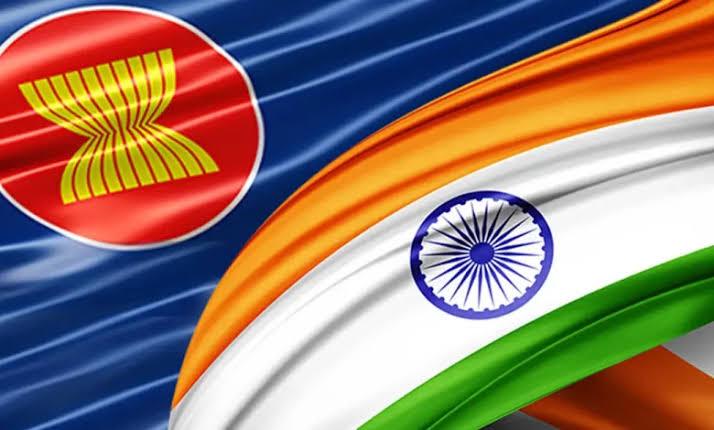
India’s Act-East Policy
Another aspect to EAM Jaishankar’s visit is India’s very popular foreign policy: Act East Policy. The trip was to commemorate the tenth anniversary of India's Act East policy.
India announced its Act East Policy in November 2014, which was a major change from its previous Look East Policy. Driven by a pragmatist and proactive mindset, the Act East Policy seeks to strengthen strategic, commercial, and cultural links with the Asia-Pacific region. This diplomatic initiative involves close engagement with countries in Southeast Asia, with a focus on connectivity, trade, culture, defence, and various forms of people-to-people interaction.
The Act East Policy has three main goals in mind: first, to develop strategic relationships with countries in the Indo-Pacific area; second, to foster cultural ties and economic cooperation. Enhancing economic development in India's Northeastern Region (NER), which acts as a gateway to Southeast Asia, is essential to this endeavour.
Unlike the Look East Policy, the Act East Policy broadens its scope to include greater economic integration and security cooperation with East Asian countries, in addition to ASEAN countries. With a focus on the 4Cs, Culture, Commerce, Connectivity, and Capacity Building, India aims to expand its regional engagements through a variety of programs.
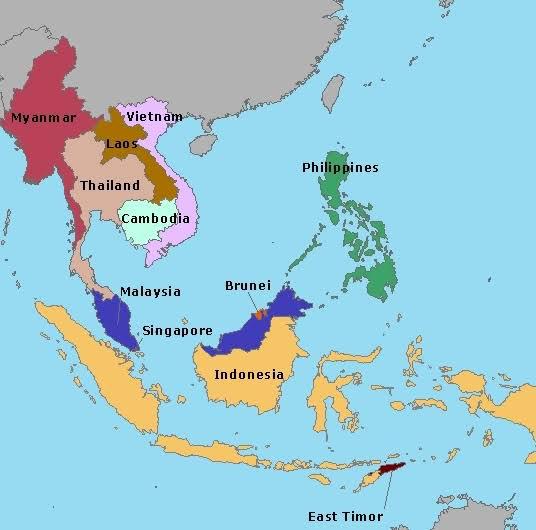
Addressing security issues in the face of increasing Chinese assertiveness in the South China Sea and the Indian Ocean is a crucial component of the Act East Policy. India emphasizes the significance of maintaining freedom of navigation and conforming to international standards, partnering with regional partners via the Quad to advance maritime security.
The Act East Policy places special emphasis on India's northeast, enabling improved trade, cultural exchanges, and infrastructure development with ASEAN countries. India's dedication to regional integration and prosperity is demonstrated by projects like the India-Myanmar-Thailand Trilateral Highway and the Kaladan Multi-modal Transit Transport Project.
A more nuanced approach to the Act East Policy is assumed in the context of Indo-China relations. Even as India tries to improve its collaboration with China in a number of areas, such as the economy, strategic differences still exist, as demonstrated by events such as the Doklam Standoff. India is attempting to counterbalance China's expanding influence, as seen by its strong stance on the South China Sea issue and its strategic alliances in the area.
India's strategic shift towards soft balancing in the Indo-Pacific region is embodied in the Act East Policy, which uses soft power to pursue strategic objectives and balance China's assertiveness. India wants to improve its standing in the region and advance stability and prosperity in the Indo-Pacific by interacting with ASEAN countries.
Photo Credit: X
(Inputs from Multiple Sources)
©️ Copyright 2024. All Rights Reserved Powered by Vygr Media.

